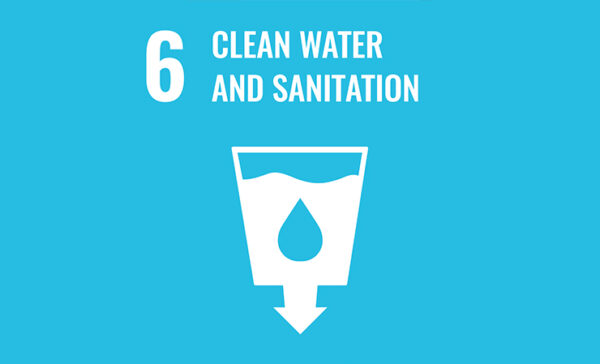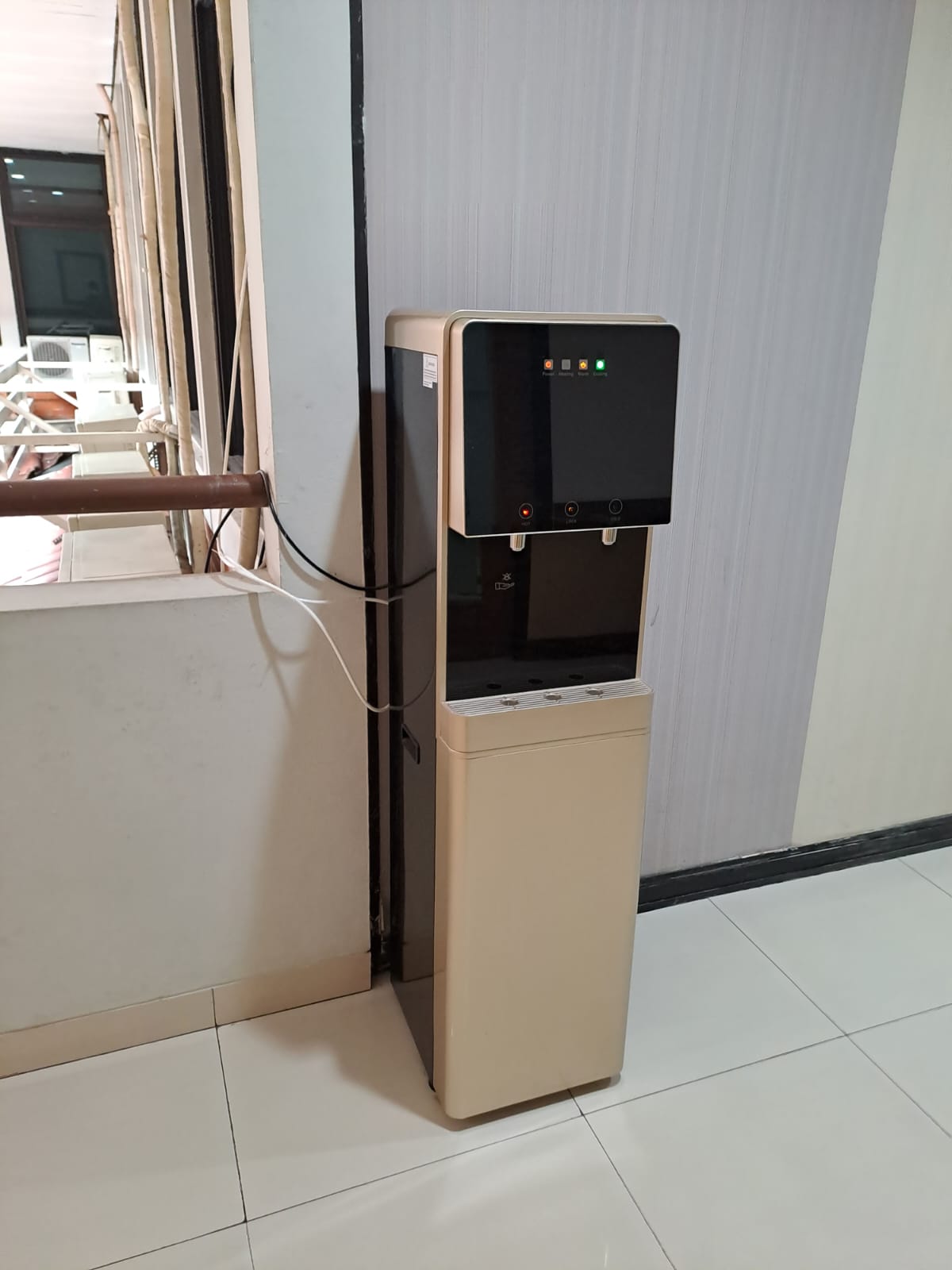
6.2.1 Water consumption tracking
Measure the total volume of water used in the university that is taken from mains supply, desalinated, or extracted from rivers, lakes, or aquifers?
The Faculty of Law, University of Indonesia has campaigned for electricity and water savings to reduce electricity and water consumption. These savings are expected to help to save the earth. As is known, electricity demand in Indonesia is currently increasing and this is not balanced with adequate electricity supply. In addition, electricity in Indonesia is currently still dominated by fossil energy that is not renewable and produces combustion residues that are not environmentally friendly. Meanwhile, water savings are carried out in connection with clean water resources which are currently also decreasing.
The way the Faculty of Law campaigns for electricity and water is to put electricity and water saving stickers on every corner of the room as well as an appeal to use stairs compared to elevators, and the pasting of water-saving stickers in each available toilet. In addition to sticking stickers containing energy saving advisories, electricity savings are also carried out by using LED lights and water savings are carried out by installing censored water taps and reusing wastewater from ablution sites to be used as plant sprinklers.
Evidence Link : https://law.ui.ac.id/profil/fasilitas/pembangunan-berkelanjutan/
6.2.2. Water consumption per person
Volume of water used in the university: Inbound (treated/extracted water)
Number of campus population
6.3.1. Wastewater treatment
A process in place to treat wastewater.
Water is urgently needed by all living things for their survival. The need for water is always increasing with the development of development and the development of the population. The development of development both in the UI campus area and around the UI campus area, will reduce water catchment land. On the other hand, the use of groundwater as a source of clean water is increasing. This condition causes the volume of groundwater to decrease.
The use of surface water (ex: river water, lakes) as a source of clean water not only requires treatment with extra technology, but also requires a fairly high cost. It is not surprising that the selling price of water by PDAMs also tends to experience a continuous increase Therefore, water saving has become one of the main focuses for Sustainability on campus.
The University of Indonesia already has a policy on clean water conservation on campus, namely with the Decree of the Rector of the University of Indonesia Number: 1309 / SK / R / UI / 2011 concerning the Policy on clean water conservation on the campus of the University of Indonesia which was established on June 20, 2011, one of the contents of the Rector’s Decree, namely the Realization of water use and management through clean water saving at the University of Indonesia.
To support this policy, FHUI has implemented a new breakthrough oriented towards the Decree of the Rector of the University of Indonesia Number: 1309/SK/R/UI/2011 concerning clean water conservation policies on the Campus of the University of Indonesia.
Evidence Link : https://law.ui.ac.id/profil/fasilitas/pembangunan-berkelanjutan/
6.3.2. Preventing water system pollution
Processes to prevent polluted water entering the water system, including pollution caused by accidents and incidents at the university.
6.3.3. Free drinking water provided
Provide free drinking water for students, staff and visitors (e.g. drinking water fountains).

6.3.4. Water-conscious building standards
Apply building standards to minimise water use
6.3.5. Water-conscious planting
Plant landscapes to minimise water usage. (e.g. use drought-tolerant plants)
6.4.1 Water re-use policy
To utilize water effectively and efficiently, FHUI has implemented a Reverse Water system. There are two water reservoirs (groundtanks) used for water treatment plants where wastewater is flowed through pipes and accommodated in a reservoir, then processed into raw water. This wastewater comes from the rest of the ablution water discharge and sinks. This shelter is located in Plataran FHUI and Mushola Prof. H.M Daud Ali, S.H.
The raw water resulting from the water treatment plant is used for sprinkler irrigation systems and manual watering of water.
Evidence Link : https://law.ui.ac.id/profil/fasilitas/pembangunan-berkelanjutan/
6.4.2. Water reuse measurement
Measure the reuse of water across the university?
6.5.1. Water management educational opportunities
Provide educational opportunities for local communities to learn about good water management
Free
Paid
6.5.2. Promoting conscious water usage
Actively promote conscious water usage on campus, and in the wider community
On Campus
Wider Community
6.5.3. Off-campus water conservation support
Support water conservation off campus
6.5.4. Sustainable water extraction on campus
Where water is extracted (for example from aquifers, lakes or rivers) utilise sustainable water extraction technologies on associated university grounds on and off campus.
6.5.5. Cooperation on water security
Cooperate with local, regional, national, or global governments on water security.
Local
Regional
National
